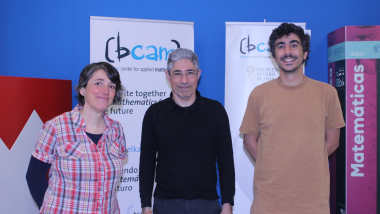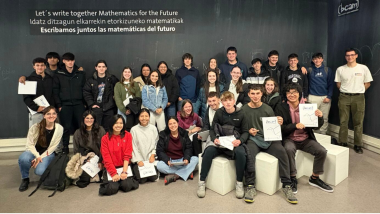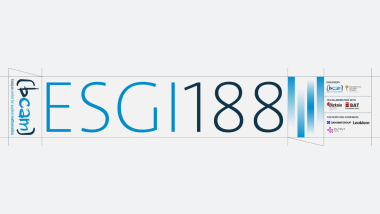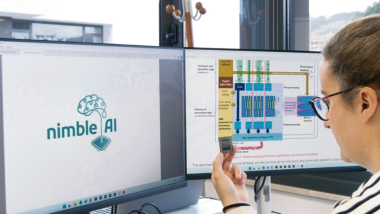BCAM participates in SegurH2, an Elkartek project that seeks to guarantee the safety of green hydrogen infrastructures
- BCAM is part of a Consortium led by Tecnalia in which IKOR Technology Centre, the University of Mondragón, the UPV/EHU and Tekniker also participate.
- On behalf of BCAM, Tomás Teijeiro (Ramon y Cajal Research Fellow) and Ana Fernández Navamuel (Juan de la Cierva Research Fellow) are participating in this project.
- SEGURH2 is a project funded by the Department of Industry, Energy Transition and Sustainability of the Basque Government (ELKARTEK 2024 Programme).
BCAM participates in SEGURH2 as part of the consortium led by Tecnalia. This consortium is focused on the development of innovative technologies to ensure the safety of infrastructures associated with green hydrogen. SegurH2 focuses on analysing possible risk scenarios and creating advanced models to simulate and predict potential impacts.
In addition to BCAM, the consortium includes IKOR Technology Centre, the University of Mondragón, the UPV/EHU and Tekniker.
On behalf of BCAM, Tomás Teijeiro (Ramon y Cajal Research Fellow) and Ana Fernández Navamuel (Juan de la Cierva Research Fellow) are participating in this project.
One of the pillars of the project is the development of intelligent sensor systems, designed to actively monitor hydrogen infrastructures and detect leaks or other critical situations at an early stage. This objective is crucial in a context where the industry is seeking to consolidate hydrogen as a key element in the energy transition.
According to Tecnalia, the project seeks to ‘generate scientific-technological knowledge to understand the propagation of hydrogen leaks’. As part of this effort, Tecnalia has inaugurated a specific laboratory dedicated to the study of hydrogen, which includes pioneering facilities in Europe for researching, validating and scaling technologies related to its generation, storage, transport, distribution and safety.
Within SegurH2, advanced predictive models are being developed to identify risk situations in advance, together with specific sensors for the efficient detection of leaks. These advances will make it possible to establish hydrogen propagation models based on experimental data and technical criteria that facilitate the implementation of safe infrastructures.
Furthermore, the validation tests will be carried out in Kubik, Tecnalia's experimental building, which offers a controlled and realistic environment for testing these innovative solutions. With SegurH2, the consortium aims to make a significant contribution to the development of a hydrogen sector that is safe, sustainable and ready to face the challenges of the energy transition.
SEGURH2 is a project funded by the Basque Government's Department of Industry, Energy Transition and Sustainability (ELKARTEK 2024 Programme).
Related news
About the center
About the center




